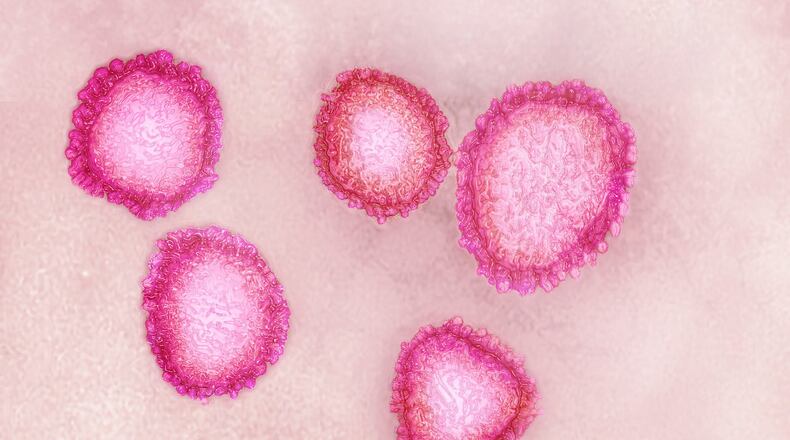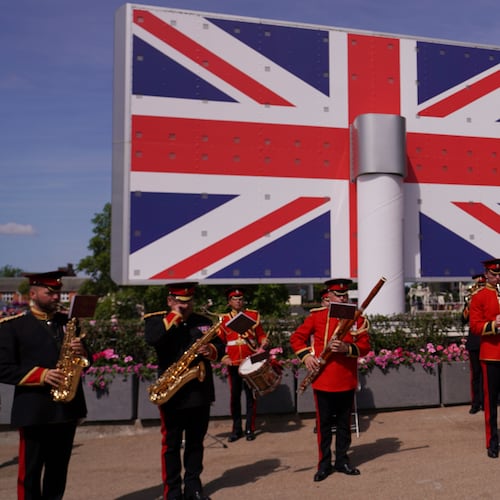This column was written by an Atlanta business leader who wants to remain anonymous. The Atlanta Journal-Constitution decided to publish it because it provides insight into issues faced by people who suspect they might have the coronavirus infection but are unsure.
I never imagined myself as a character in a global pandemic novel. But, when I came down with a fever last week and tried to get tested for the coronavirus, that’s exactly how I felt.
I tell this story because I think it’ll offer insight into how difficult it is for a person to find out whether he or she has the virus, which only makes it harder to stop the spread.
I live here in Atlanta. Just two weeks ago, I was still traveling for work and eating in restaurants. In the week ending March 6, I had been to Paso Robles, Calif., San Diego, Chicago and Nashville, Tenn. I had shaken hands with people fresh in from New York City, Los Angeles, Orlando, Fla., and Abu Dhabi, United Arab Emirates. I didn’t see any of this as a big deal — until I got a fever that Monday.
I hadn’t had one in years. And, with a pregnant wife at home and a weekend of COVID-19 horror stories in the news, I was worried. Some experts think symptoms of COVID-19, the illness caused by the coronavirus, may be more severe in pregnant women. And, if I did have the virus, I needed to find out quickly so I could notify the many people I’d had contact with the week before. My wife and I agreed that I should immediately quarantine myself until I could be diagnosed.
But self-quarantining is not as easy as it sounds.
Where do you go? I decided to check into a hotel, with a bunch of soup, and to put a “do not disturb” sign on the door. The thought of infecting other people terrified me, so I brought with me Clorox wipes to disinfect every surface I touched. And I started making calls to find out what I needed to do to get tested for COVID-19.
Getting tested is also not as easy as it sounds.
There weren’t — and still aren’t — tests readily available for an average Joe. But, given the fact that I am soon to be in a newborn ward and had recently come into contact with a lot of people, I convinced a doctor of the importance of diagnosing me.
Setting up my appointment, the receptionist called and told me to come after hours so as not to alarm anyone. They had me meet them in the open-air stairwell coming up from the street. A doctor and a nurse — wearing surgery smocks, booties, gloves, face masks and face shields — stood there, waiting for me. It looked like a scene from the movie “Contagion.”
They asked for my ID and insurance card. I handed them over. They carried them down the walkway to their clinic, where someone else in protective garb took the cards and went away. Then they proceeded to give me three nose swabs that would test for strep, flu and a panel of 18 potential viral infections.
While they were doing the swabs, people were walking by the parking garage with alarmed looks on their faces. I told them I was being tested for the flu. “Yeah, right,” they would say as they hurried off.
As the doctor and nurse finished up, they said that the final swab would be the one tested for COVID-19 — maybe.
Wait, what?
They told me that, because tests were extremely limited, they couldn’t guarantee that one would be performed. But they said they would store the swab until a test became available.
So, I asked, what’s the point? Why had we just gone through all of that?
I needed to find out whether I was infected with the coronavirus. I couldn’t wait until some far-off date in the future.
I decided to call a doctor I knew at another hospital system. She told me she would expedite a test if at all possible.
This time, medical staff had me come to the loading dock. I appreciated the discretion and the need to take care of other patients, but I don’t see how this can work on a larger scale, when more people are being tested.
I was given an N-95 mask and taken to a secure examination room. A very friendly and informative doctor examined me and said a COVID-19 infection was highly unlikely. But, because of the network of people I had reached out to in order to get tested, he would be able to expedite the process.
He, too, did the three swabs and said it would take one to three days to hear back.
I went to the hotel for the final lockdown. Three days felt like a long time alone in a hotel room. I FaceTimed with my wife and kids, who wondered when I would come home. I couldn’t order room service or go out to dinner for fear of infecting others. I actually lost a bit of weight.
On Friday the 13th, my test result came back negative. It was such a relief and a happy moment in what had been a crazy week.
But then it quickly dawned on me that lots of people are in the situation I was in. Lots of folks have people in their lives that they’re trying to protect. I had resources to call on. But what are others, who are less fortunate, going to do?
More tests are supposed to be available in the next couple of weeks. And, when they are, we are likely to find out that there are many more cases of COVID-19 in Georgia than the number publicized.
The problem is, right now, we can’t know how many there are because so few people are being tested. We’ll never know how many people became infected, unwittingly spread the virus and are now well.
Luckily, as scary as this disease is, it is not as deadly as something such as Ebola. We can only hope that social distancing, hand washing and staying home will make all the difference.
About the Author
Keep Reading
The Latest
Featured


